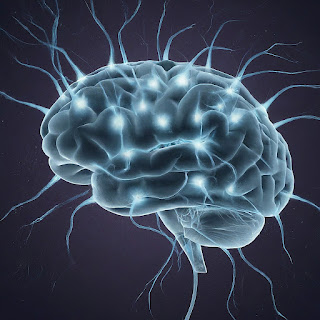In psychology, "transpersonal" refers to a school of thought that goes beyond the traditional focus on the individual self (or ego) and explores the spiritual and transcendent aspects of human experience.
It delves into those moments where we feel connected to something larger than ourselves, whether it's nature, humanity, or a sense of universal consciousness.
Think of it as a bridge between psychology and spirituality. Transpersonal psychology acknowledges the importance of:
* Higher states of consciousness: Experiences of expanded awareness, interconnectedness, and profound meaning.
* Spiritual experiences: Moments of deep connection with the divine, the sacred, or a sense of ultimate reality.
* Personal growth and transformation: The potential for human beings to evolve and develop beyond the limitations of the ego.
Key Concepts in Transpersonal Psychology:
* Self-transcendence: Moving beyond the boundaries of the individual self and experiencing a sense of unity with something greater.
* Spiritual awakening: A profound shift in consciousness that leads to a greater understanding of oneself and the universe.
* Mystical experiences: Moments of intense connection with the divine or the sacred, often accompanied by feelings of awe, wonder, and gratitude.
* Peak experiences: Moments of intense joy, fulfillment, and meaning, often associated with creativity, flow states, or deep connection with others.
In a broader sense, "transpersonal" can refer to anything that extends beyond the individual or personal realm. It can describe:
* Relationships: A deep connection between people that transcends individual differences and creates a sense of shared humanity.
* Art and creativity: Works of art that evoke a sense of the transcendent or connect us to something larger than ourselves.
* Nature: Experiences in nature that evoke a sense of awe, wonder, and connection to the natural world.
How Transpersonal Psychology is Used:
Transpersonal psychology is applied in various ways, including:
* Therapy: Helping people explore spiritual experiences, find meaning in life, and overcome challenges related to spiritual crises or existential concerns.
* Personal growth: Facilitating practices like meditation, mindfulness, and self-reflection to promote self-awareness and spiritual development.
* Research: Investigating the nature of consciousness, mystical experiences, and the potential for human transformation.
In essence, transpersonal psychology invites us to explore the full spectrum of human experience, including those aspects that go beyond the ordinary and connect us to something greater than ourselves.
Transpersonal Psychology: Beyond the Individual
In psychology, "transpersonal" refers to a school of thought that goes beyond the traditional focus on the individual self (or ego) and explores the spiritual and transcendent aspects of human experience. It delves into those moments where we feel connected to something larger than ourselves, whether it's nature, humanity, or a sense of universal consciousness.
Think of it as a bridge between psychology and spirituality. Transpersonal psychology acknowledges the importance of:
* Higher states of consciousness: Experiences of expanded awareness, interconnectedness, and profound meaning.
* Spiritual experiences: Moments of deep connection with the divine, the sacred, or a sense of ultimate reality.
* Personal growth and transformation: The potential for human beings to evolve and develop beyond the limitations of the ego.
Key Concepts in Transpersonal Psychology:
* Self-transcendence: Moving beyond the boundaries of the individual self and experiencing a sense of unity with something greater.
* Spiritual awakening: A profound shift in consciousness that leads to a greater understanding of oneself and the universe.
* Mystical experiences: Moments of intense connection with the divine or the sacred, often accompanied by feelings of awe, wonder, and gratitude.
* Peak experiences: Moments of intense joy, fulfillment, and meaning, often associated with creativity, flow states, or deep connection with others.
In a broader sense, "transpersonal" can refer to anything that extends beyond the individual or personal realm. It can describe:
* Relationships: A deep connection between people that transcends individual differences and creates a sense of shared humanity.
* Art and creativity: Works of art that evoke a sense of the transcendent or connect us to something larger than ourselves.
* Nature: Experiences in nature that evoke a sense of awe, wonder, and connection to the natural world.
How Transpersonal Psychology is Used:
Transpersonal psychology is applied in various ways, including:
* Therapy: Helping people explore spiritual experiences, find meaning in life, and overcome challenges related to spiritual crises or existential concerns.
* Personal growth: Facilitating practices like meditation, mindfulness, and self-reflection to promote self-awareness and spiritual development.
* Research: Investigating the nature of consciousness, mystical experiences, and the potential for human transformation.
In essence, transpersonal psychology invites us to explore the full spectrum of human experience, including those aspects that go beyond the ordinary and connect us to something greater than ourselves.




.jpeg)




.jpeg)
.jpeg)



